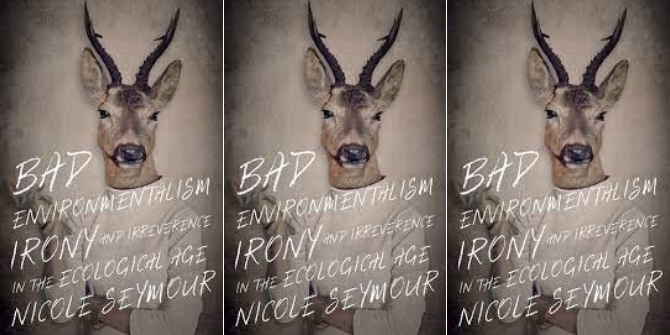 Land is one of the world’s most emotionally resonant resources, and control over it is fundamental to almost all human activity. In Land, Derek Hall develops a framework for understanding the geopolitics of land today. Drawing on a wide range of cases and examples – from the Afghanistan–Pakistan border to the Canadian Arctic, China’s urban fringe to rural Honduras – Hall provides an enlightening glimpse into the many conceptual, empirical, financial, political and emotional struggles around land and geopolitics, finds Susannah Wilcox.
Land is one of the world’s most emotionally resonant resources, and control over it is fundamental to almost all human activity. In Land, Derek Hall develops a framework for understanding the geopolitics of land today. Drawing on a wide range of cases and examples – from the Afghanistan–Pakistan border to the Canadian Arctic, China’s urban fringe to rural Honduras – Hall provides an enlightening glimpse into the many conceptual, empirical, financial, political and emotional struggles around land and geopolitics, finds Susannah Wilcox.
 Land. Derek Hall. Polity. December 2012.
Land. Derek Hall. Polity. December 2012.
Derek Hall is a political scientist by degree but anthropologist, historian, economist, scholar of international development and zombie theorist in practice. This multidisciplinary perspective stands him in good stead for exploring something as complex and contested as the human relationship with land. We needn’t look further than the Israel-Palestine conflict, the controversies surrounding the UN’s REDD programme, or the race for natural resources in the Arctic to understand the wide range of difficulties Hall faces in untangling issues of jurisdiction over, ownership of, and attachments to land.
Even the task of defining ‘land’ presents numerous difficulties. As Hall himself notes, ‘[a] hectare of Siberian tundra, of Mekong Delta rice paddy, and of mid-town Manhattan condominiums and businesses are so different that it can be difficult to think of them as the same kind of resource’.
Hall seeks to tame this complexity by imposing on it a tripartite theoretical framework. First, there is ‘territory’: the cultural and historical attachments to a particular piece of land that motivate a group to claim political authority over that land. Second, comes ‘regulation’: the set of rules that govern the ownership, acquisition and use of land. Finally, there is ‘property’: the bundle of rights that determine who is able to access land, decide how it will be used, draw on its resources, and sell or lease it to others.
This framework provides a coherent thread that draws together Hall’s diverse and fascinating set of case studies: the internal and external struggles over ‘frontier’ territory in Pakistan’s FATA region; the transnational expropriation of land in a global ‘land grab’ across Sub-Saharan Africa, India, and elsewhere; the ‘righteous resistance’ of peasants to the compulsory acquisition of their land by local officials in rural China; and so on.
However, while Hall emphasises the contingency and complexity of concepts of statehood, nation, people, and so on, he does not seem to apply the same rigour to his own conceptual framework. He admits that the distinctions he draws between territory, regulation and property ‘reflect a modern conception of the human relationship to land’ that has ‘not necessarily been part of the mental furniture of all people at all times’ but fails to fully recognise the complexities of his own conceptual categories.
In order to probe a little deeper, let’s set aside property and regulation in order to focus on Hall’s first guiding idea: territory. In constructing this concept, Hall’s aim is to simplify and structure his discussion of land. Yet he seems to add complexity by conflating (at least) two different, though overlapping, ideas within the one concept: (a) the idea of peoples’ cultural and historical attachments to land, which speaks to land’s role as ‘a core part of human identity’; and (b) the idea of political authority or jurisdiction over land, where this entails the capacity to create and enforce rules within a given territory (including power over things like taxation, immigration or social policy).
While these two ideas may be connected – indeed, according to theories of popular sovereignty, the state is said to exercise political authority on behalf of its people within the territory to which they feel a deep shared attachment – they are not necessarily, and they may even come into conflict. Hall himself recognises that there is no straightforward relationship between land, state sovereignty and nationhood. He acknowledges that a state’s political authority within a given territory may in fact precede and create a sense of collective identity in the population it governs; and that indigenous or minority groups may feel a connection to land that conflicts with the claim to territorial jurisdiction made by the state in which they live.
Yes despite this, Hall insists on subsuming these two broad concepts within the one theoretical category: ‘territory’. This means that his first two chapters – which discuss the modern idea of the state as sovereign over a clearly defined territory, and related internal and external territorial disputes – find themselves in somewhat of a muddle. Hall’s concept of territory, for example, partially obscures the wide range of objectives behind different territorial disputes. Are they concerned with territorial jurisdiction, access to natural resources or financial markets, deep-rooted attachments to land, or a combination of these? And what implications do these different objectives have for the methods used to resolve such disputes (free trade agreements, ICJ proceedings, unilateral military intervention, and so on)?
Hall has made a conscious decision, for reasons of space, to not look in detail at definitions of the concepts of territory, property, sovereignty, state, nation, and so on: he has simply ‘chosen my own definitions and proceeded with them’. However, Hall’s account would have been strengthened by a deeper, more nuanced engagement with others’ struggles across this difficult terrain. Was Hall’s conceptual framework informed by Allen Buchanan’s account of the ambiguities inherent in the modern concept of statehood, Karen Knop’s critical analysis of the idea of the world as a jigsaw of neatly interlocking pieces, James Crawford’s thoughts on the dis-analogy between territory and property, or others? Which ideas was he inspired by, and which is he reacting against? Answers to these questions might help us better understand Hall’s decision to choose a particular theoretical framework.
Despite these conceptual hiccups, Land provides an enlightening glimpse into the many conceptual, empirical, financial, political and emotional struggles around what is ‘a fundamental component of almost all human activities and a core part of human identity’. Hall’s personable, engaged approach provides an ideal entry point into this difficult subject, and his obvious empathy for the subjects of his research colours but does not cloud his analysis.
——————————————————————————————-
Susannah Willcox is a PhD student in the Department of Law at the London School of Economics, where she found herself after completing an undergraduate degree in Philosophy and Anthropology at the University of Sydney and an MSc in Human Rights at LSE. She is currently exploring the implications of climate change for the sovereignty and self-determination of the populations of low-lying small island states, and is also interested, more broadly, in human rights, statehood, displacement and marginalisation. Read reviews by Susannah.







